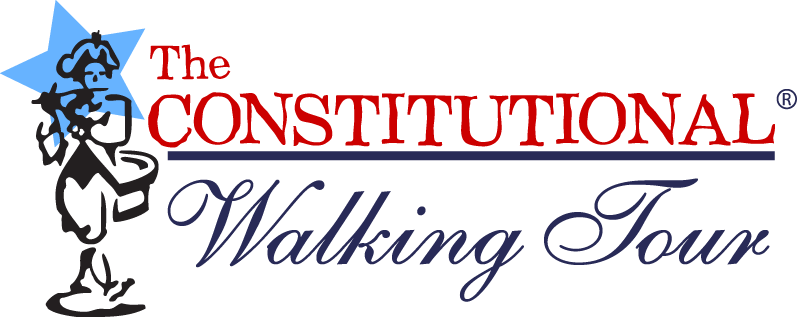Related Posts
- Buy Tickets for The Constitutional Walking Tour of Philadelphia – See 20+ Sites on a Primary Overview of Independence Park, including the Liberty Bell and Independence Hall
An ambitious documentary that tackles the history of Philadelphia from William Penn to the present day
The History
Philadelphia has been among the largest and most important cities in the United States from the beginning. Huge national issues from independence, to abolition, to LGBT rights grew out of movements started in Philadelphia. A lot has happened since Penn founded Philadelphia in 1682 and while there have been other documentaries that have attempted to capture parts of that history; never before has there been a project as ambitious as Philadelphia: The Great Experiment.
Produced by Sam Katz, a former Philadelphia mayoral candidate, Philadelphia: The Great Experiment tells the story of Philadelphia over the course of 12 half hour long documentary episodes. Senior Writer Nathanial Popkin writes the documentary along with Katz himself and other contributors. Popkin is an author and journalist who has contributed to the Philadelphia Inquirer and Philly.com and is the founding editor of Hidden City Daily; a web magazine and public history project that covers architecture, design, planning, policy, and preservation. Together the team at History Making Productions tell the story of Philadelphia, a city which they call “the single most compelling stage for the unfurling and testing of American ideals. William Penn’s city was the first in the world to codify freedom of religion, individual rights, trial by jury, and a democratic assembly as the pillars of a constitution amendable by the people.”
The show has garnered high ratings while airing on local television in the Philadelphia area and has also been a critical success. Philadelphia: The Great Experiment won three 2013 Mid-Atlantic Emmy awards.
What to See
As of the writing of this blog, seven episodes of the documentary series have been released and all of them are very much worth a watch. The documentaries have not been released chronologically as the first episode deals with the period from 1865-1876 and the most recent episode features events that occurred between 1680 and 1720. Therefore you don’t have to watch the episodes in chronological order and each episode tells a standalone story. If there is a period of Philadelphia’s history that interests you most feel free to start there and jump back to other parts of Philadelphia’s history later.
One episode shows viewers what is happening in Philadelphia as a massive influx of immigration comes to Philadelphia during the Industrial Revolution. Another episode shows how Philadelphia struggles through the turbulent 1960s and 1970s while yet another episode details what was happening in Philadelphia even before it was settled by William Penn and the Quakers.
Another great thing to look at are the webisodes that accompany each episode. Creator Sam Katz thinks of the webisodes as a type of “video footnote.” For example, in the episode “The Floodgates Open: 1865-1876” the game of baseball in Philadelphia is but a tiny part of the documentary. The webisodes allow a place for these smaller topics to be expanded upon in a big way. An entire nine minute webisode delves much deeper into the history of baseball in Philadelphia and the role the city had in shaping the game in its early years. The webisodes even touch on topics that weren’t included at all in the main documentaries and discuss topics as diverse as Abraham Lincoln’s funeral or the desegregation of Girard College. Whether watched as an accompaniment to the main documentary or by themselves, the webisodes can be very interesting to watch.
Insider Tips
Educators who are preparing for a field trip to Philadelphia to take The Constitutional Walking Tour can prepare for their trip using Philadelphia: The Great Experiment. The entire documentary project was created with students in mind. Episodes are designed to educate students while capturing their attention with the incredible stories of Philadelphia’s past. Many of the episodes also have bonus educational content that is available for free online. Educational content includes lesson plans, in class activities, worksheets, and relevant vocabulary.
Philadelphia: The Great Experiment can prove to be especially useful to educators who are preparing to take The Constitutional Walking Tour’s Yellow Fever Tour. An entire episode focuses on the Yellow Fever Epidemic of 1793 and the educational resources provided with the episode are exceptional. There are also numerous webisodes that relate to the Yellow Fever Epidemic of 1793 on a variety of topics. Some of the webisodes delve into key figures involved in the epidemic such as Benjamin Rush, Richard Allen, and Stephen Girard. Other webisodes delve into how the epidemic actually spreads and affects the body, while others tackle gruesome problems such as how and where to bury the thousands of yellow fever victims.
How to Get There
No need to use Septa for this one. Philadelphia the Great Experiment is available wherever you have online access. Episodes and webisodes can be watched directly on historyofphilly.com or on their YouTube page. For those who are local to the Philadelphia area, you can also catch new episodes on broadcast television. New episodes will periodically air on 6ABC, with the most recent episode airing Thursday, September 4th at 7:30pm. Episodes are introduced by Jim Gardner, longtime news anchor for 6ABC’s Action News and run without commercial interruption.
Hours
Episodes are available online 24/7.



